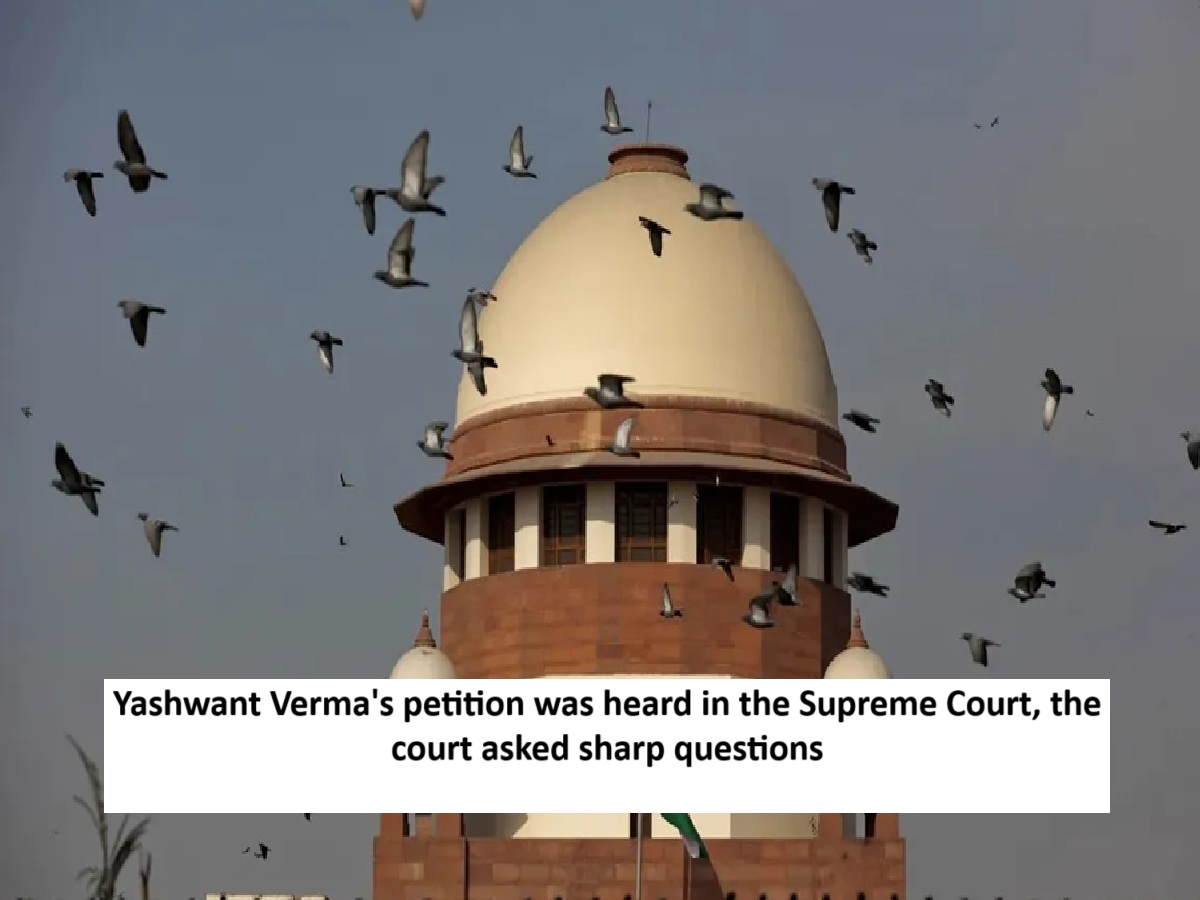
News Topical, Digital Desk : The Supreme Court on Monday began hearing a petition filed by Justice Yashwant Verma of the Allahabad High Court. Justice Yashwant Verma has challenged the findings of an internal judicial inquiry, which held him guilty of misconduct in connection with the discovery of burnt notes at his official residence in Delhi. A bench of Justices Dipankar Dutta and A.G. Masih raised sharp questions on the contours of the petition and the judge's conduct.
The petition seeks to invalidate the findings of the internal panel and the recommendation of the removal of Justice Verma by the then Chief Justice Sanjiv Khanna. The incident dates back to March 14-15, 2024, when the Delhi Police found half-burnt cash inside the official bungalow of the judge.
Supreme Court raised questions on ignoring the investigation report in the petition
Senior advocate Kapil Sibal, appearing for Justice Verma, argued that his client was convicted without any due process and sensitive documents were leaked to the media before any formal parliamentary process could take place. "The report was made public and the judge was declared guilty prematurely," Sibal told the court.
However, the Supreme Court bench took strong exception to this omission in the petition. Justice Datta said, "You should have filed the internal investigation report along with your petition. This petition should not have been filed like this." The bench also questioned why Justice Verma did not object earlier or participate in the proceedings of the internal committee. The court said, "You are a constitutional authority. Why did you not appear before the committee? You cannot claim ignorance."
'Why is sending a report to the President problematic?
During the hearing, the court asked Sibal where the inquiry report had been sent. When Sibal replied that the report had been sent to the President of India, the court further asked: "Why do you think sending the report to the President is problematic?" The bench clarified that submitting the report to the President and the Council of Ministers is not tantamount to the Chief Justice "influencing" Parliament to initiate impeachment proceedings. The court stressed that this communication was not inherently unconstitutional or prejudicial.
'Process politicised, judges biased': Sibal
Kapil Sibal, citing the public publication of the tapes, online discussions and premature conclusions drawn by the media, said the entire process had been politicised. He argued that as per Article 124(5) and previous Constitution Bench judgements, there should be no discussion on the conduct of a judge until a formal impeachment motion is introduced in Parliament.
next hearing on wednesday
After hearing preliminary arguments, the bench adjourned the hearing of the case. The hearing will now resume on Wednesday (July 30, 2025), when the court will further examine whether the procedures followed in the investigation violated constitutional safeguards.
Read More: 'Anyone can file a case', those who damage public property will no longer be spared; SC orders
--Advertisement--

 Share
Share



